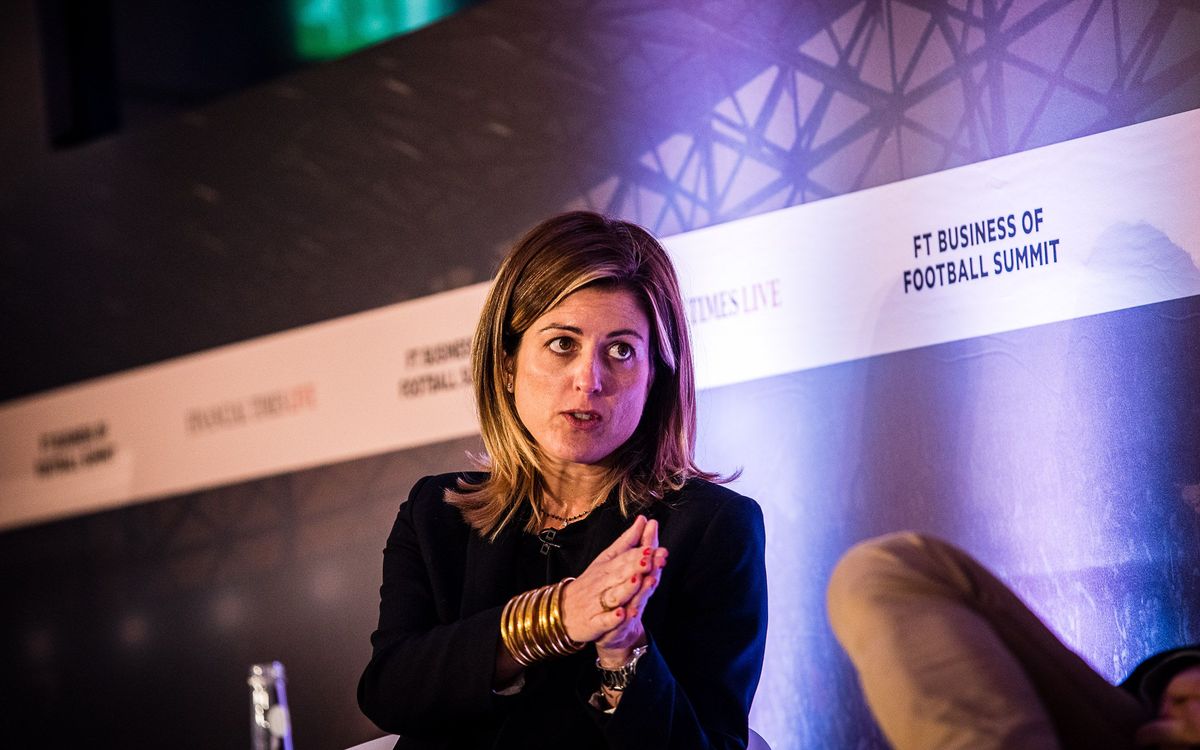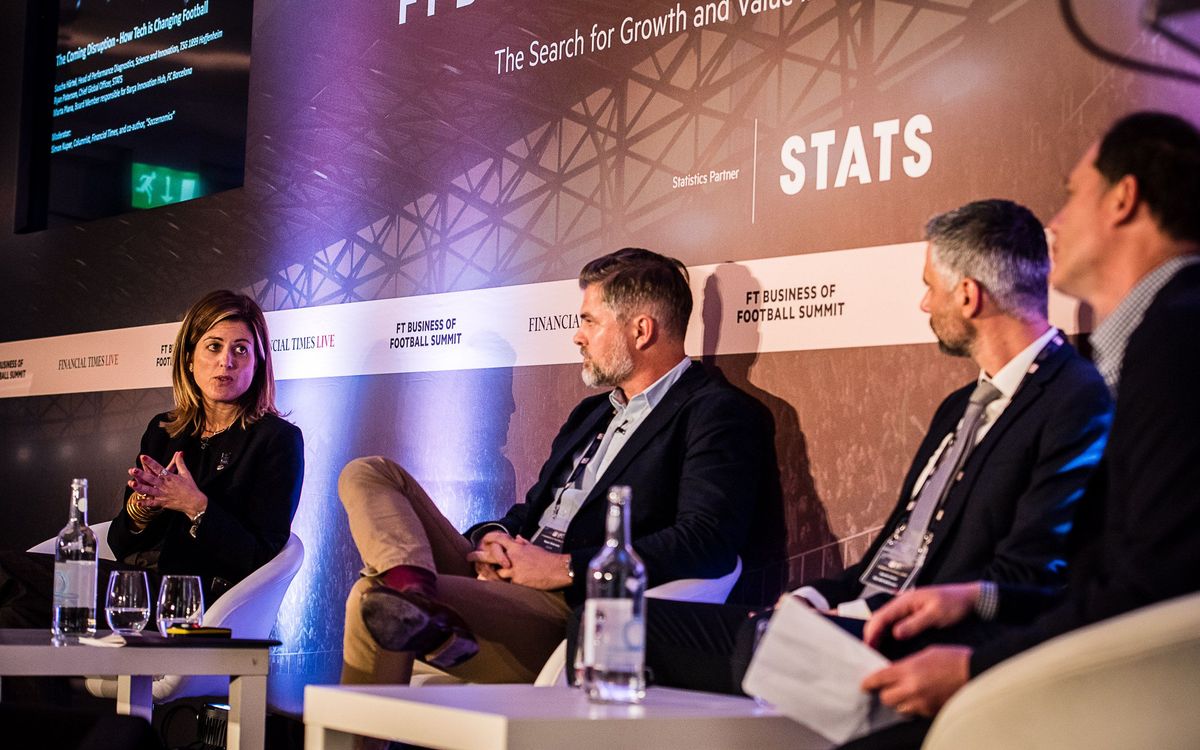Barça Innovation Hub contributes to the Financial Times 'Business of Football Summit'
- Viber
- Messenger
- Copy link
The Barça Innovation Hub (BIHUB) was one of the main themes of the 'Business of Football Summit,' one of the most prestigious symposia in the sports industry, organised in London by British newspaper The Financial Times. The board member responsible for the Barça Innovation Hub, Marta Plana, was invited to explain the work carried out by the platform that handles research, innovation and training projects for the different areas of the Club.
At the talk, attended by over 130 people and entitled 'The Coming Disruption - How Tech Is Changing Football,' the Barça representative explained three research and innovation projects that are currently applied at Barça and how technology is helping athletes to improve performance. The panel was moderated by Simon Kuper, a journalist for the British newspaper, and also featured the participation of Sasha Härtel, Head of Analysis, Science and Innovation for German football club 1899 Hoffenheim, and Ryan Patterson, Chief Global Officer for STATS -a company specialising in technology and data in the world of sport.
Explaining the Barça model

Plana focused her talk on three projects. The first was a WIMU device, which uses Ultra Wide Band technology that is more accurate than GPS, that tracks the biometric data of club athletes to improve performance and prevent injuries. This device that has been co-developed by the Performance Department, together with the company Real Track, and can be used both indoors and outdoors.
The board member responsible for the Barça Innovation Hub also spoke about the research project that won first prize at the MIT Sloan Sports Analytics Conference organised by the Massachusetts Institute of Technology in February. The FC Barcelona Sports Analytics department works on the development of algorithms based on artificial intelligence, with the ability to recognise different tactical patterns. The research project has developed an artificial intelligence model that can identify the control, generation and occupation of space that each player creates with their movements off the ball. With this algorithm, the types of movements most likely to result in a goal can begin to be defined.
Finally, Plana also discussed the sleep study the Club and Allianz are undertaking with Barça athletes at La Masia, to analyse the quality of their rest and how it can affect sporting performance. It is a pioneering scientific project, about which to date there has been practically no literature, which will involve a personalised assessment of their sleep, with the aim of measuring the possible impact on their sporting performance and health. The study, which will last approximately six months, will collect qualitative data on the sleep patterns of 600 athletes aged 13 to 17 years old, with an individualised sleep study for 50 of these young people.
- Viber
- Messenger
- Copy link

